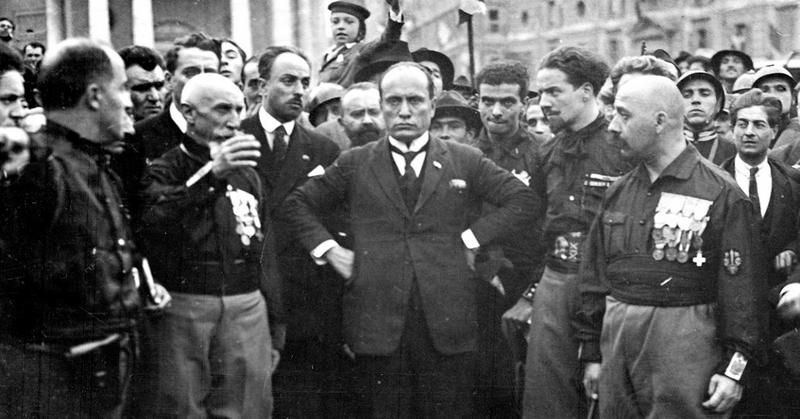Fascist Blackshirts March On Rome In 1922: How The Fascist Party Made Themselves Known
By | October 31, 2020

In 1922, after years of drumming up support for his fascist ideals, Benito Mussolini ordered his followers to march on Rome, dooming socialists and liberals in Italy. It wasn't just a coming out party for Mussolini; it was a show of strength and power so intimidating that he was given control of the government shortly after his followers seized newspapers and government offices. As big a win as this was for Mussolini, though, he wasn't even present for the march.
Mussolini: Origins
Mussolini went into World War I a socialist, but over the course of the war, he denounced Marxism for failing to recognize class distinctions in Italy. In 1914, however, he changed his mind about proletarian leadership and instead called for people of any social class to take up the reigns of the country as long as they were revolutionary.
In 1917, after Mussolini was injured in action and sent home from the front, he began putting together his plans for Italian Socialism. While he didn't initially lean into eugenics, he believed in the "natural law" of stronger people dominating those who he felt were "inferior," such as Italy's Slavic neighbors.

The Blackshirts
As Mussolini's Italian fascist movement built up steam, he leaned on friends like Dino Grandi to bring as many of their people into the fold as possible. Grandi formed an armed group of World War I veterans called the Blackshirts, or the squadristi, who patrolled the streets to fight with communists, socialists, anarchists, and anyone else they saw as a threat to fascism.
By 1922, Mussolini had the numbers to ascend to leadership in Italy, with 320,000 members in his National Fascist Party. After speaking with U.S. Ambassador Richard Washburn Child about America's feelings on a fascist Italian government and liking what he heard, he prepared for a march on Rome in October 1922.

The March On Rome
On October 24, 1922, Mussolini gave a speech in front of 60,000 of his followers in Naples, where he declared his party's intent "to rule Italy." Afterward, Mussolini posed for photos with the marchers before traveling to Milan, leaving his underbosses—Emilio De Bono, Italo Balbo, Michele Bianchi, and Cesare Maria de Vecchi—in charge of the march. As the Blackshirts marched toward Rome, they took over newspapers, telegram offices, government buildings, army barracks, and even museums throughout Italy to arm themselves for whatever battle awaited in Rome.
When the mob of 30,000 reached Rome on October 28, Prime Minister Luigi Facta tried to stop the coup by ordering a state of siege. If King Victor Emmanuel III of Italy had consented to the order, the Italian military could have fought off the Blackshirts and stopped the coup in its tracks, but he feared the loss of his throne if the fascists won against the army. It's likely that this cowardly act kept Italy from falling into even more turmoil and disarray. Had he signed over military power to the prime minister, there would have been blood in the streets.

Mussolini Saves The Nation
Mussolini was still in Milan when he received the news that the King had refused to shove Rome under martial law and his coup was a success. He was so certain of his new power that he refused to speak with the King about setting up a coalition cabinet—he wanted it in writing that he was in charge of Italy, and he wanted General Arturo Cittadini to dictate the telegram. On the night of October 29, Mussolini rode a sleeper car to Rome from Milan before resting in the Savoy Hotel for his meeting with the King, and the next morning, the two formed a team that turned Italy into a fascist country until the end of World War II.
On November 1, Mussolini ordered his followers to march themselves right back home, and the Blackshirts left the city holding palm leaves as the King announced, "Mussolini has saved the nation." The Italian people were just relieved that there had been little fighting in Rome, and fascism was accepted as an agreeable alternative to a civil war. It worked out great.

